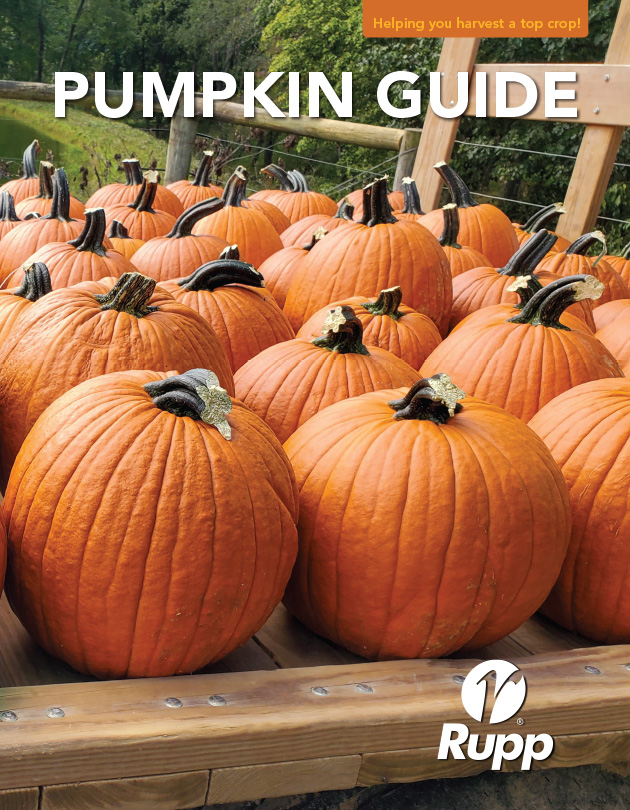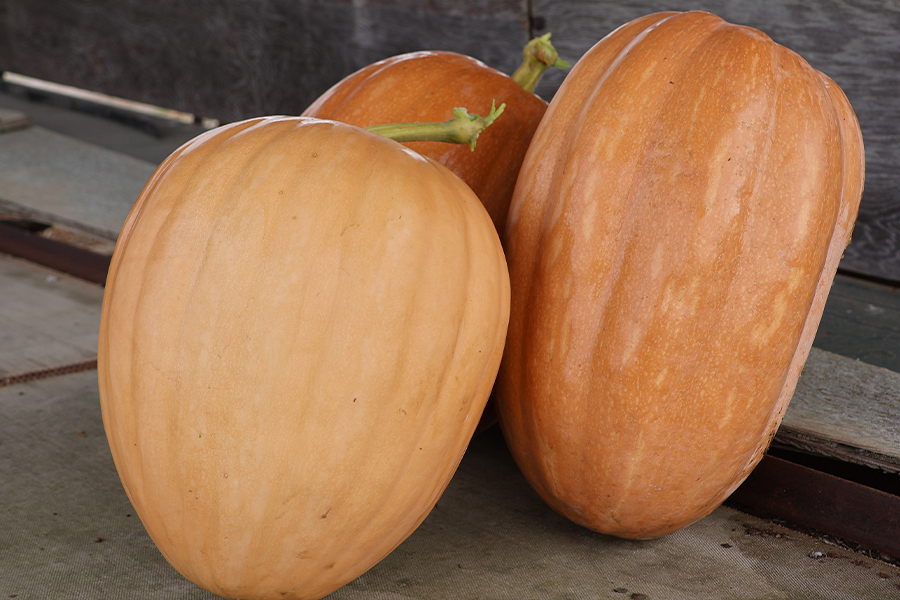
Dickinson Field
An old widely used pumpkin variety for the processing industry.
| V38542 : Dickinson Field | ||
|---|---|---|
| Treatment | * Pkg Size | ** Price (USD) |
| FarMore FI400 | 100 seeds | $4.90 |
| FarMore FI400 | 250 seeds | $9.00 |
| FarMore FI400 | 1M seeds | $24.00 |
| FarMore FI400 | 3M seeds | $62.25 |
| FarMore FI400 | 25M seeds | $456.25 |
| FarMore FI400 | 100M seeds | $1,695.00 |
| Treated | 100 seeds | $3.50 |
| Treated | 250 seeds | $6.45 |
| Treated | 1M seeds | $17.20 |
| Treated | 3M seeds | $41.85 |
| Treated | 25M seeds | $286.25 |
| Treated | 100M seeds | $1,015.00 |
|
* M = 1,000 ** US customer prices shown in USD. *** Canadian customers, please log in to see CA prices in USD. |
||
Attributes

Pumpkin Guide
Pumpkins are a fun and profitable crop to grow. The satisfaction of seeing perfectly uniform bins of pumpkins heading off to market or the joy of watching school children selecting their favorite during a farm visit is unmatched.
Our Pumpkin Guide will help you produce the best crop possible for your market. Request your copy today!
Growing Tips
- Planting
-
Plant pumpkins ½” - 1” deep. For a general rule of thumb plant seed the depth of three times the thickness of the seed. Plant spacing varies depending on fruit size. If planting a large pumpkin give plant approximately 72 sq. ft. of space. Medium sized pumpkins require 30 sq. ft. of space. Pie pumpkins require 24 - 30 sq. ft. of space. Miniature pumpkins require 10 - 24 sq. ft. of space. See the Pumpkin Planting / Harvest Timing chart on page 111 of the catalog for additional information.
Planting Guidelines - PumpkinApproximate Seeds per Pound:3,000 - 3,200Seeding Rate per Acre by Weight:.06 - 1.2 lbsSeeding Rate per Acre in M (1,000):1.9 - 3.8 MSeeding Rate Seeds per 1,000 foot of Row:333 - 500Seed or Plant Spacing In Row:24 - 36"Seed or Plant Spacing Between Rows:72 - 96"Seed or Plant Spacing Depth:.5 - 1"Recommended Soil Temperature:70 - 80°FDays to Germination:7 - 10
- Management
-
Scout fields every 7 days to ensure crop health. Look for insect, weed, and disease pressure. The first three weeks focus on weeds and insect pressure. Then focus on disease pressure. For weed, insect, and disease identification and treatments consult the Midwest Vegetable Production Guide: Midwest Vegetable Production Guide for Commercial Growers 2023 or your local extension. Place pollinators in field to ensure maximum fruit set.
- Harvest
-
Harvest when fruit has developed deep color. Handles will appear dry. Cut handles with shears to protect handles from being broken off.
- Storage
-
Clean fruit of dirt and wash in 5% chlorine solution. Let air dry and cure for 10 - 12 days. Make sure air is able to circulate around fruit. It is important to keep fruit dry.
- Plant Spacing
-
Each variety or type of pumpkin has an optimum plant spacing for its best performance. If plants are too close, stress and competition can decrease fruit size and possibly even reduce the number of female flowers. Under extreme stress, tight spacing may eliminate the crop entirely.
Optimum spacing for maximum yield, especially for jack-o-lantern pumpkins, will not necessarily be the best spacing for large fruit size. For large fruit, we would suggest reducing plant density to the next recommended plant population.
- Accurate plant spacing will be an equal opportunity environment for every plant.
- Suggested populations are for final plant stands.
- To achieve ideal plant populations it is necessary to either over-plant and hand thin or to plant according to recommendations and hand plant later to fill skips.
- Seed corn maggots, wire worms, mice and birds, floods or lack of rain are all common problems that effect accurate stand establishment.
Pumpkin Plant Spacing Chart Row
WidthDistance
Between
PlantsPlants
Per AcreCategory 1 12’ 6’ 605 Category 2 7 1/2 to 9’ 4' 1,210 to 1,450 Category 3 6 to 7 1/2’ 4' 1,450 to 1,815 Category 4 5 to 6’ 2' 3,600 to 4,350

